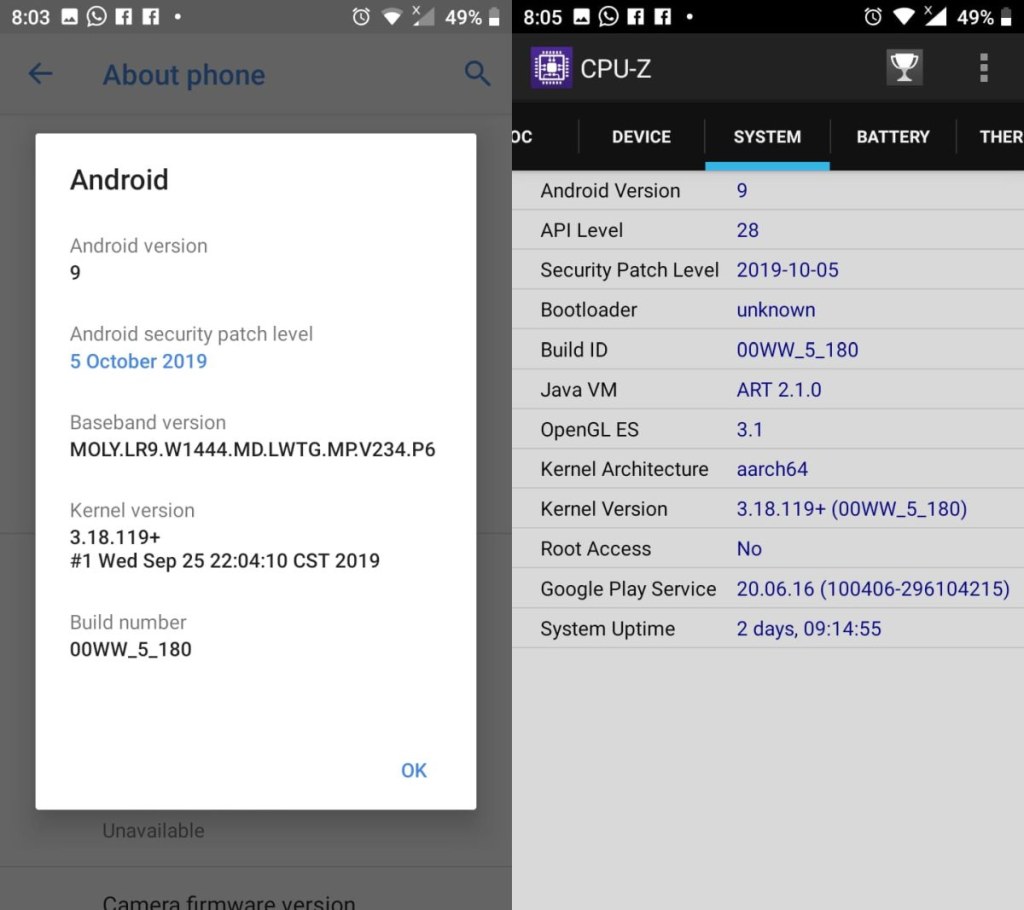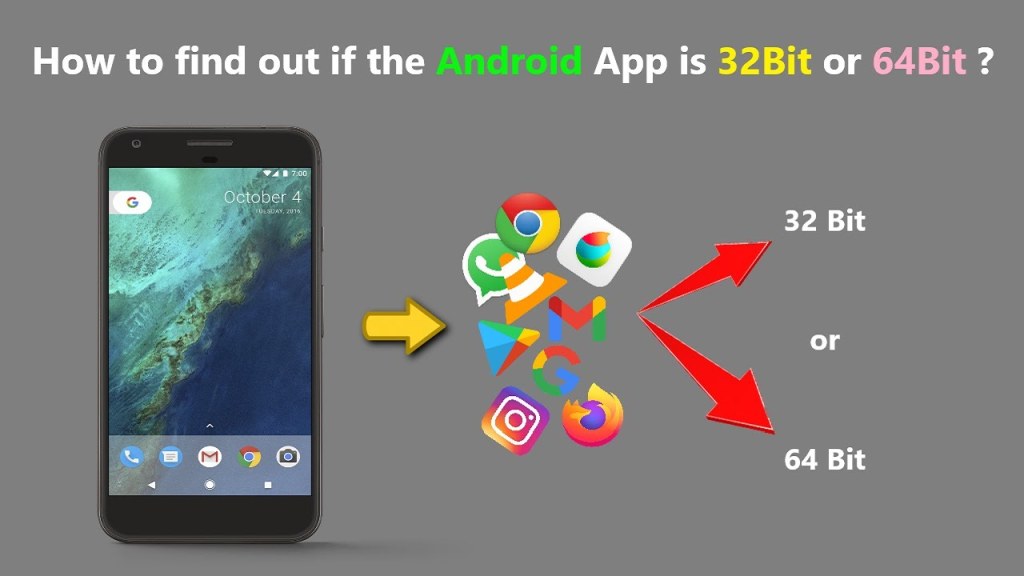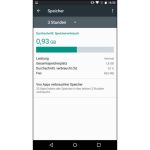Upgrade Now: Experience Faster Performance With Our Android App 32 Or 64 Bit!
Android App 32 or 64 Bit: Everything You Need to Know
Introduction
Dear Readers,
3 Picture Gallery: Upgrade Now: Experience Faster Performance With Our Android App 32 Or 64 Bit!
Welcome to our comprehensive guide on Android app 32 or 64 bit! In today’s digital era, smartphones have become an integral part of our lives, and Android is one of the most popular operating systems worldwide. With the advancement in technology, the choice between 32-bit and 64-bit apps has emerged as a crucial decision for both developers and users. In this article, we will delve into the intricacies of this topic and provide you with all the relevant information you need to make an informed choice. So, without further ado, let’s dive in!
Overview of Android App 32 or 64 Bit

Image Source: flipab.it
Before we delve into the details, let’s understand what exactly is meant by Android app 32 or 64 bit. In simple terms, it refers to the architecture on which an app is built. The architecture determines the compatibility and performance of the app on different devices. In the context of Android, the most common architectures are ARMv7 (32-bit) and ARMv8 (64-bit).
What is Android App 32 or 64 Bit?
🤔 Android app 32 or 64 bit refers to the architecture on which an app is built. The architecture determines the compatibility and performance of the app on different devices.
Who Should Consider Using Android App 32 or 64 Bit?
🤔 Android developers and users who want to optimize app performance and compatibility on their devices should consider using the appropriate architecture.
When Should You Use Android App 32 or 64 Bit?

Image Source: addictivetips.com
🤔 The choice between 32-bit and 64-bit architectures depends on various factors such as device compatibility, target audience, and app requirements. We will discuss this in detail in the subsequent sections.
Where Can You Find Android App 32 or 64 Bit?
🤔 Android app 32 or 64 bit can be found on various app stores, including the Google Play Store. Developers can also create and distribute their apps through their own websites or third-party platforms.
Why Should You Care About Android App 32 or 64 Bit?

Image Source: ytimg.com
🤔 Understanding the implications of choosing the right architecture can significantly impact the performance, compatibility, and user experience of your Android app.
How to Determine Whether to Use Android App 32 or 64 Bit?
🤔 The decision to use 32-bit or 64-bit architectures depends on several factors, such as the target audience’s device compatibility, app requirements, and performance considerations. We will explore these aspects in detail later in the article.
Advantages and Disadvantages of Android App 32 or 64 Bit
Advantages of Android App 32 or 64 Bit
1. Improved Performance: 64-bit apps can take advantage of the increased processing power and memory capacities of modern devices, resulting in faster and more efficient performance.
2. Enhanced Security: 64-bit architectures offer enhanced security features, making it harder for malicious actors to exploit vulnerabilities in the app.
3. Compatibility: 32-bit apps can run on both 32-bit and 64-bit devices, ensuring wider compatibility with older devices.
4. Smaller File Size: 32-bit apps generally have smaller file sizes compared to their 64-bit counterparts, reducing download and installation times.
5. Legacy Support: Some older devices may only support 32-bit architectures, so developing a 32-bit app ensures compatibility with a broader range of devices.
Disadvantages of Android App 32 or 64 Bit
1. Limited Performance Optimization: 32-bit apps may not fully utilize the processing power and memory capabilities of newer devices, resulting in suboptimal performance.
2. Security Risks: 32-bit architectures may have fewer security features compared to 64-bit architectures, making them potentially more vulnerable to attacks.
3. Lack of Future Compatibility: As technology advances, more devices will transition to 64-bit architectures, potentially rendering 32-bit apps obsolete.
4. Reduced Access to New Features: Some advanced features and APIs may only be available for 64-bit apps, limiting the functionality of 32-bit apps.
5. App Store Restrictions: Certain app stores, including the Google Play Store, have started requiring developers to provide 64-bit versions of their apps, leading to limited distribution opportunities for 32-bit apps.
Frequently Asked Questions (FAQs)
Q1: Are 32-bit apps compatible with 64-bit devices?
A1: Yes, 32-bit apps can run on both 32-bit and 64-bit devices without any compatibility issues.
Q2: Can a 64-bit device run 32-bit apps?
A2: Absolutely! 64-bit devices are designed to be backward compatible and can seamlessly run 32-bit apps.
Q3: How can I determine if my device is 32-bit or 64-bit?
A3: You can check your device’s architecture by going to the Settings menu, selecting About Phone, and looking for the Processor or CPU information. It will mention the architecture (32-bit or 64-bit).
Q4: Should I prioritize developing 64-bit apps over 32-bit apps?
A4: It depends on your target audience and their device preferences. If you want to optimize performance and take advantage of advanced features, developing a 64-bit app is recommended.
Q5: Can I convert my existing 32-bit app to 64-bit?
A5: Yes, but it requires thorough testing and potential code modifications to ensure compatibility and optimal performance on 64-bit devices.
Conclusion
After exploring the ins and outs of Android app 32 or 64 bit, it’s evident that the choice of architecture plays a crucial role in the performance and compatibility of your app. While 64-bit apps offer enhanced performance and security, 32-bit apps provide wider compatibility and smaller file sizes.
As technology evolves, it’s essential for developers and users alike to stay updated and make informed decisions based on their specific requirements. Whether you choose 32-bit or 64-bit, always prioritize the user experience and strive to deliver the best possible app for your target audience.
Remember, the world of Android app development is constantly evolving, and staying ahead of the curve is the key to success. So, embrace the latest technologies, experiment, and never stop learning!
Final Remarks
Dear Readers,
We hope this article has provided you with valuable insights into the world of Android app 32 or 64 bit. It’s crucial to understand the implications of choosing the right architecture to optimize your app’s performance and compatibility.
However, please note that the information provided in this article is intended for educational purposes only, and it’s always recommended to consult with professionals or refer to official documentation for specific technical guidance.
Thank you for reading, and we wish you all the best in your Android app development journey!
This post topic: Android Apps

